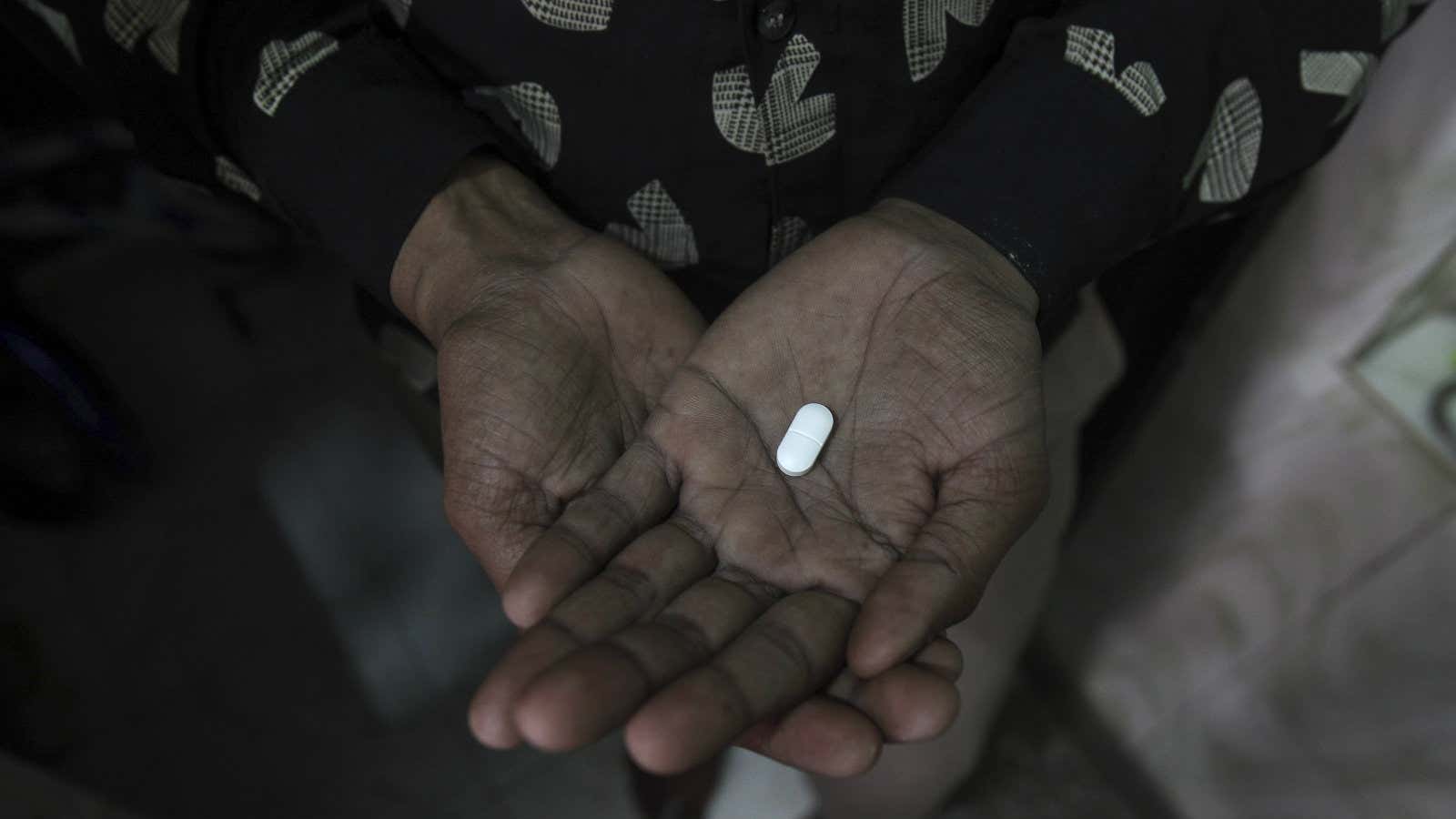On March 10, the Central Drugs Standard Control Organisation (CDSCO)—an Indian drug regulator—banned 344 drugs (pdf) in the country. The notification said that these drugs can’t be made, sold or distributed in the country. These medicines are fixed dose combinations, which means they are made by mixing two or more drugs.
The CDSCO gave two main reasons for the ban: the drugs were “likely to involve risk to human beings” while safer alternatives were available, and they were “found to have no therapeutic justification.” The list of the banned drugs included some widely used products such as the Vicks Action 500 tablet, made by Procter & Gamble, and Pfizer’s Corex cough syrup.
While many drug-makers have challenged this ban—and succeeded in getting temporary relief—investors seem to have given the verdict already. Since March 11, the BSE Healthcare Index—a broad indicator of pharma stocks—has dropped 3.44%. This at a time when India’s benchmark Sensex index gained 2.3%. The BSE Healthcare index has 15 pharma stocks, including Cipla, Glenmark, Lupin and Torrent Pharma.
Here’s how the indices performed:
The impact on investor portfolios due to the ban on these drugs could be to the tune of Rs1,200 crore, Deven Choksey, managing director of KR Choksey Securities, a stock broking firm, told Quartz.
“The overhang of the situation will definitely take a toll on the stocks for sure and the investor sentiment will continue to remain low till there is more clarity from the government,” Choksey said.
Growth outlook
Investors are worried as this ban means loss in revenue for pharma companies.
“As for the revenue, most Indian companies are dependent on combination drugs because they drive sales. So a drop in revenue could be possible for companies who are heavily dependent on combination drugs,” Surajit Pal, a pharma research analyst at Prabhudas Lilladhar, a brokerage, told Quartz.
Pal believes this ban was long due.
“Typically, around 60-70% of combination drugs in the industry do not hold any logic. Many of them are produced for purely commercial purposes, irrespective of what their health impacts are. These practices should be stopped,” he said.
The drop in domestic revenue will only add to the woes of Indian drug-makers. Experts have already warned of a bleak export growth for the 2017 fiscal year. For instance, a Feb. 1 report by India Ratings and Research, a credit ratings agency, said export growth in the 2017 fiscal will be about 5%. The slow growth is due to regulatory challenges and competition in foreign markets. The agency expects the domestic market growth around 13-15%.
Meanwhile, questions have been raised about how the the government handled the situation. The fact these drugs were allowed to be sold in the first place is of concern, Dhvani Mehta, who heads the Public Health and Environmental Justice Initiative at the Vidhi Centre for Legal Policy, wrote in Scroll.in.
Earlier this month, Dinesh Thakur, a whistleblower and activist, had filed a public interest litigation against the CDSCO, questioning regulatory standards in India’s pharma industry. The supreme court dismissed the petition.
